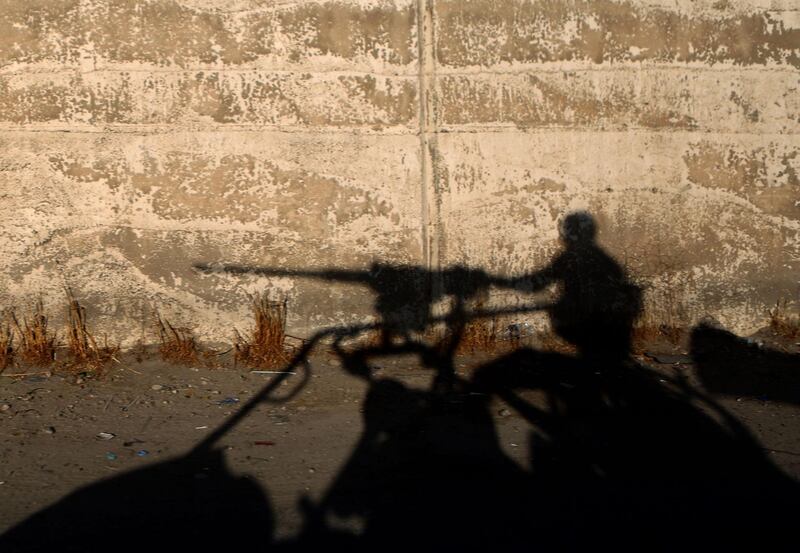Last week, Lebanon's military tribunal sentenced Hanin Ghaddar, a Lebanese journalist working at the Washington Institute for Near East Policy, to six months in prison, in absentia. Ms Ghaddar was accused of "insulting" the Lebanese army, because at a panel discussion in 2014, she had said that the army was clamping down on Lebanese Sunnis, thereby "creating injustice."
The decision was remarkable for two reasons. The military tribunal’s decision to condemn Ms Ghaddar for statements made abroad sent a worrisome message that Lebanese citizens could be pursued legally wherever they might be, for whatever they might say that displeased the state. Rarely has the military sought to engage in such a broad interpretation of its censorship power.
And second, it represented a further expansion of the tribunal’s power to matters not of its remit. The military tribunal must deal solely with military affairs.
The tribunal's decision was not only outrageous, it was also reckless, inasmuch as it sent a very bad message to the United States about a privileged partner, namely the Lebanese military. This is paradoxical, because the legal action against Ms Ghaddar may have been taken because her comments criticised the military in the one place where it counted most. Lebanon is highly dependent on US military aid, and the last thing the military leadership wants is to see Lebanese citizens condemning its behaviour in American policy circles.
If there is any doubt about the message arriving in Washington, one of Ms Ghaddar’s colleagues at the Washington Institute, David Schenker, was recently appointed assistant secretary of state for Near Eastern affairs. He has long defended US aid to the Lebanese military. However, what happened to Ms Ghaddar is not likely to make his task easier.
Ms Ghaddar, a Shia from southern Lebanon, has also long been a critic of Hizbollah, but it's not clear whether the party was directly involved in pushing for her prison sentence. However, often the unknowns behind a particular decision have much more of a freezing effect on free speech than anything else. Ms Ghaddar, a single mother of a young boy, has just been prevented from seeing her family in Lebanon, a severe punishment for a few words of disapproval.
________
Read more from Opinion
Hanin Ghaddar A war with Hizbollah would essentially mean war with Iran this time around
________
Ms Ghaddar's case is only the latest in a series of similar cases in Lebanon. Several weeks ago, a leading talk show host, Marcel Ghanem, was taken to court because of comments made by two of his guests on his weekly programme. His case provoked much indignation too, suggesting someone could be held legally responsible for statements he or she did not make. The logical conclusion was that Mr Ghanem was being used to intimidate all talk show hosts and ensure that they invited only guests deemed acceptable by the state.
More recently, Lebanon's general security directorate censored the new film by director Steven Spielberg, The Post, because he is a supporter of Israel. All of Mr Spielberg's films have been shown in Lebanon, so this was another attempt to narrow the parameters of free speech. The decision was received with such disdain in Beirut, that the prime minister, Saad Hariri, ordered that the ban be reversed. However, this led Hizbollah's secretary general, Hassan Nasrallah, to publicly express his opposition to the film being shown. While it is now being projected, Mr Nasrallah's comments will doubtless scare some people away.
These ham-fisted efforts to curtail free speech are leading to an angry backlash in society. The Lebanese don’t like to see their country behaving like a banana republic. However, the mere fact that such measures are being carried out is worrisome. If the recent cases signal a new aggressiveness on the part of the state, it cannot bode well.
That said, Lebanon is not an easy place to censor. The fragmented sectarian system makes it far more likely that government overreach will prompt a wide range of negative reactions from political forces not in tune with those in power. That was the case of Ms Ghaddar, whose sentence was condemned by a former prime minister as well as a former justice minister. Repression is much more difficult in divided societies such as Lebanon than in more centralised states.
What is equally disheartening is that Lebanon’s political class seems so oblivious to the consequences of this rising censorship. The government cannot afford to push the Trump administration into cutting off military aid to the Lebanese military. Ms Ghaddar’s case will not do that on its own, but at a time when Lebanon is already viewed by many people in Washington as being controlled by Hizbollah, her case can only add to calls that such aid be terminated.
One parliamentarian made a very pertinent observation in talking about the risks to the Lebanese armed forces. “They just cut military aid to Pakistan, do you really think that they might not choose to do so for Lebanon?”
He had a point. There is nothing sacred or eternal in US military aid to Lebanon, nor will the United States long remain silent about Lebanese attempts to prevent free speech. The decision to sentence Ms Ghaddar should be tossed out, like the one to ban The Post was. The country has been maligned enough by outsiders not to have to foolishly contribute to that endeavour itself.
Michael Young is editor of Diwan, the blog of the Carnegie Middle East programme, in Beirut





